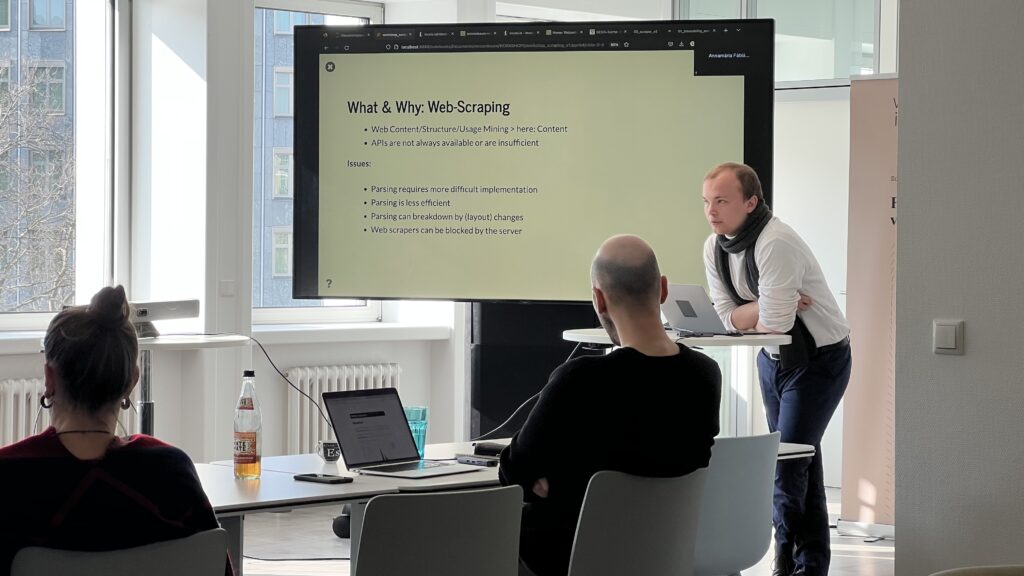From February 6–10, Methods Lab member Roland Toth attended the online course Machine Learning with Big Data for Social Scientists at ECPR Winter School.
The goal was to gain a deeper insight into certain machine learning methods and to be able to apply them to social science questions in particular. It was also about efficiency in handling large data sets so that they can still be processed with high performance.
Numerous materials were made available for the workshop in advance. There were videos for each session in which presentation slides on the respective topics of the session were presented in the style of a lecture. These were accompanied by appropriate literature and studies. On each of the workshop days, there were two-hour live sessions in which the content of the videos was repeated and the application of the principles was practiced live.
The first step was to set up RStudio Server on the Amazon Web Services (AWS) cloud service. This offloads the entire RStudio environment from one’s own machine, allowing handling data and calculations without burdening local resources.
Furthermore, work with the package collection tidyverse was deepened. Here, among other things, it turned out that the function vrooom from the package of the same name provides faster import of larger data sets than similar functions. In addition, it was discussed how to access external data sets directly from RStudio via SQL syntax, so that it is not necessary to import the full data sets at all.
For illustrative purposes, data sets on COVID vaccination status and election outcomes in the United States were used during the workshop. Respectively, the observations were clustered at different levels (state, county, …), which rendered the merging of the data sets difficult. Besides typical functions of data wrangling (filtering, grouping, aggregating, mapping, merging), some special machine learning methods were discussed. Here, the logic of the procedure was first demonstrated using simple linear regression models: A model is trained with a (smaller) training data set and then applied to a (larger) test data set. The model is supposed to accurately predict the outcome, but not as accurately as to overfit to the training data and perform badly on the test data – in the end, it was a question of a balance between variance and bias. During the workshop, this principle was also applied to LASSO and Ridge regression, logistic regression, and classification methods such as Support Vector Machines, Decision Trees, and Random Forests.
All in all, it was a good introduction to working with machine learning methods. However, there was limited focus on the decision criteria for choosing certain methods over others, and a strong focus on the technical implementation of the methods in R. Nevertheless, the workshop was able to clarify some open questions and provide some new techniques that will help when working with larger datasets and in data analysis.
